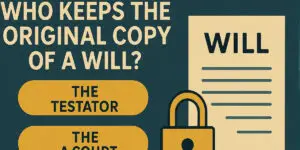What is an Executor’s Deed?
1. Get the passing endorsement
The agent of a domain is liable for memorial service and entombment plans and pays those expenses out of the bequest.
2. Track down the will or trust
Whoever informed you that you are the agent will probably know the area of the will or trust records. You’ll require a duplicate of the will for the probate court; it generally should be recorded inside a couple of days to a month later the passing. Assuming that the perished individual had a living trust, you could possibly stay away from probate court assuming that the trust was set up appropriately.
Trust resources can be dispensed promptly without court endorsement, while a probate judge should settle on the conveyance of resources covered by a will. By and large, from a half year to two years.
3. Look for proficient exhortation
A lawyer can prompt you on lawful advances and assist with addressing inquiries from recipients who may be pushing for a speedy circulation of resources. In the event that the home should go through probate, the lawyer additionally will know the right structures to finish up to make the cycle smoother.
4. Document ‘letters testamentary’
These are guaranteed archives that demonstrate you have the legitimate power to follow up in the interest of the domain to begin taking care of bills, recording government forms, overseeing and appropriating resources, managing recipients, and opening or shutting financial balances.
5. Find and secure the resources
The best gift an agent can get from the perished individual is a point by point rundown of resources and where to track down them This incorporates wills and trusts, and desk work identified with protection, venture accounts, set up burial service plans, financial balances, genuine property like getaway homes or craftsmanship, financial matters, and associations. Reports that check the worth of collectibles or collectibles likewise can prove to be useful.
6. Cover bills and expenses
The home is responsible for paying the obligations of the expired individual, including any annual assessment and home duties that are owed. Assuming the obligations surpass the resources, potential inheritors are not responsible for covering them.
7. Try not to surge the interaction
A lawyer additionally can step in and intervene recipient debates, which can get dreadful. Set up a different recording framework for the domain, and keep duplicates of all that you’ve sent and gotten from leasers, recipients, monetary foundations and others. With a little association and cautious record-keeping, the commitments of an agent don’t need to be overpowering.
FAQ
- What is medicaid fraud?
Medicaid fraud is simply false information to get Medicaid to pay for all the services needed for yourself or someone else.
2. What is a pour-over will?
A pour-over Will is a Will written and documented stating the actions needed to be done through the trustee which will be transferred to him or her. The truster is someone who’s responsible for many assets to be taken care of or sent to assigned beneficiaries.
3. When someone dies does their debt go away?
No, when someone dies, if that person had any debt, creditors will still ask for the money back adding more credit to the accounts. After the designation of the person’s assets during court, payment of debts will also be announced to whoever the court would call responsible. So a family member, spouse or close friend will continue with paying everything you owe which is why you should make an estate plan to prevent this sort of conflict.
4. Does a trust protect assets from a nursing home?
Yes, as long as you transfer funds towards your rent, mortgage, or assistant living instead of going to a nursing home.
5. Does transfer on death avoid probate?
The transfer of death only makes the probate process much more difficult having you provide additional details and reason for the transfer. This makes the process longer and if it’s longer, it’ll be more expensive. The only way to avoid probate is through a trust because everything would be set up or planned ahead, especially the transfer of death.
6. What does an elder care attorney do?
An elder care attorney has the expertise in arranging any necessary goals to whoever the elder being served needs. It can go along with not just estate planning but also medical care proxies, elder abuse, or dealing with ownership of spousal belongings. This is all regards to any senior over the age of 50.
7. If my spouse dies do I get his social security and mine?
Because of the laws of Estate Planning, there’s something labeled, the surviving spouse clause where if one spouse dies, the surviving spouse gets his or her assets. The only assets not provided would be government funds that the spouse still owes or would actually lose the entire thing because of labeled ownership unless there’s a Will stating rights to owning these finances.
8. How do I know if my unemployment claim was approved in NY?
After applying for unemployment at the official NY government website, ny.gov, you should receive a letter towards your home address 2 weeks after applying stating how much unemployment you should be received. Though that’s if you get approved. If not, you would receive the same letter in the same amount of time saying you’re ineligible due to certain dynamics in your life that the government won’t give you many benefits.
9. Do you need a lawyer for advance directives?
These forms can be created by yourself as long as you are over the age of 18 but have the same disadvantages of handwriting your own Will. This means that advance directives shouldn’t be handwritten to prevent future fallacies due to not being able to read the file or putting information that has nothing to do with what’s needed. So you can make your own advance directives but it’s recommended to get a lawyer to guide you in the process.
10. Does a trust override a will?
No, a trust has different functions than a Will but a trust secures the Wills needs for whatever is listed.









